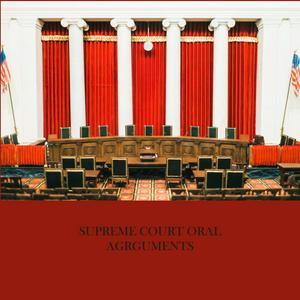Delve into the heart of American jurisprudence with SCOTUS Oral Arguments, your source for authentic recordings of Supreme Court of the United States oral arguments. This podcast serves as an invaluable archive and educational tool, offering lawyers, law students, academics, and engaged citizens the opportunity to study the nuances of legal strategy, judicial questioning, and constitutional interpretation. Here, you can explore the arguments that define legal precedent and understand the dynamics of the highest court in the land.
In addition to oral arguments, I'm piloting Generative AI reads of summaries of SCOTUS opinions. The majority opinion comes from the SCOTUS syllabus. I wrote the concurring and dissenting summaries. Please let me know if you hear any mispronunciations in the summaries.
If you have any comments, questions, feedback, or ideas, please contact me at
[email protected]. Enjoy!
